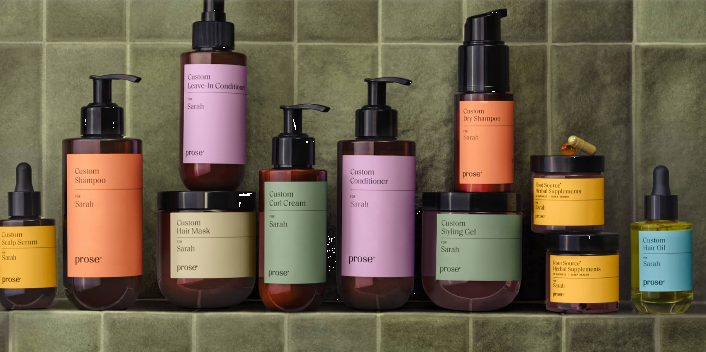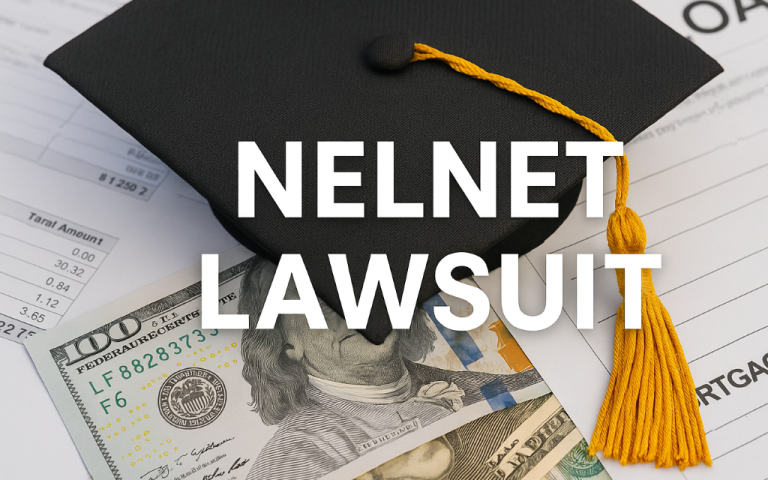Last updated: December 27, 2025
Prose Hair Lawsuit: 2025 Updates
• Current Status: As of December 2025, there are no confirmed class actions against Prose. However, many law firms are taking intake from consumers and deciding whether to proceed with bringing a lawsuit.
• The complaints have included: Hair loss, scalp burning/irritation, rashes, and allergy-related issues. Customers have reported these issues on social media and forums.
Company response: Prose states that its formulas comply with U.S. cosmetic regulations, are dermatologist-tested, and that individual sensitivities vary; support teams address concerns on a case-by-case basis.
• Regulatory. Under the Modernization of Cosmetics Regulation Act (MoCRA), the cosmetics industry will have more oversight with regulations that will likely include adverse reporting for serious adverse events.
• What should readers do: Before reaching out to a brand or an attorney, consider documentation such as photographs, batch codes from product packaging, receipts for purchases, and possibly notes from your doctor, should you have seen one.
User complaints about hair loss, scalp irritation, and allergic reactions on TikTok and other social media platforms. These claims tied to personalized Prose shampoos and conditioners have driven “Prose hair lawsuit” searches in 2024–2025. Many videos about Prose Hair on TikTok have gained more than 1 million views and become a hot topic for chatters on social media. People claiming that their hair loss, scalp irritation and other issues arose after the usage of Prose Hair products.
But, as of December 2025, no federal class action is publicly on file; several firms are accepting reports and reviewing labeling, ingredients, and advertising. This guide explains what consumers are alleging, how the company has responded, how this compares to other hair-care cases, and how to document a potential claim if you’ve reacted.
What Sparked the Prose Hair Lawsuit Claims?
Let’s start by examining the origins of the public complaints that gave rise to the Prose Hair lawsuit.
Online Complaints Led to Prose Hair Lawsuit Buzz
Concerns surrounding the Prose Hair lawsuit originated from individual customer reports. In early 2024, people shared personal experiences online that suggested something was wrong. These stories gained traction on platforms like Reddit, TikTok, and YouTube.
Some users described sudden hair shedding within a few weeks of starting Prose. Others reported red, itchy, or burning scalps. A few reported developing rashes or peeling skin. These experiences varied from individual to individual, but the volume of complaints grew rapidly.
Creators on social media posted visual timelines showing thinning hair or damaged roots. Others called out Prose for lacking clear warnings about allergens. Beauty bloggers picked up the trend, adding credibility to the claims. Class action trackers, such as ClassAction.org and Top Class Actions, began listing Prose among the brands under observation. They invited people to submit their stories for evaluation of potential claims. This combination of consumer reports and legal inquiry fueled talk of a Prose Hair lawsuit.
What Are the Main Claims in the Prose Hair Lawsuit?
To understand the full scope of the issue, let’s break down the specific allegations made by consumers.
Hair Loss and Irritation Allegations
One of the central claims tied to the Prose Hair lawsuit is unexpected hair loss. Several users say they began shedding excessive amounts of hair after using Prose shampoo and conditioner. In some cases, users reported that their scalp became dry or inflamed.
The timing of the issues often coincided with switching to Prose. A few said their dermatologists recommended stopping the product. Others reported that the damage was reversed only upon changing brands. These symptoms increased the likelihood of reactions to fragrance chemicals, preservatives, or plant extracts contained in Prose’s formulas.
Allergen Disclosure & Labeling Questions
Some consumers say they expected clearer upfront warnings about potential allergens in customized formulas. Although the purchase flow uses a hair-care questionnaire, critics argue that known allergens (e.g., certain essential oils, nut-derived ingredients, or specific preservatives) should be more prominently flagged or easier to exclude. Complaints center on a gap between customer expectations and what was labeled or disclosed. If warnings were inadequate, that could become a focus in any future litigation. (Note: allegations are not findings of fact.)
Could Marketing Be Misleading?
Once we’ve discussed health-related complaints, we have to think about how advertising is connected to the potential litigation. Prose advertises itself with terms such as “non-toxic,” “clean beauty,” and “dermatologist tested.” These terms sound good, but they are not meaningfully defined by law. That leaves room for interpretation.
Customers and critics argue that these terms could mislead people into believing the products are universally safe. If real harm occurred while those promises were made, some legal experts believe this could fall under false advertising claims. Misleading advertising could become a key issue if a Prose Hair lawsuit proceeds.
How Has the Company Responded to Prose Hair Lawsuit Concerns?
After hearing from frustrated customers, Prose has taken public steps to defend its brand and reassure users.
Public Statements on Customer Safety
The first part of the response involves the brand’s messaging. Prose has responded to user complaints with carefully worded public messages. They have not admitted fault but emphasized their commitment to safety.
According to their official channels:
- Each formula is dermatologically tested.
- All ingredients comply with U.S. cosmetic regulations.
- Individual sensitivities can vary widely.
Prose encouraged customers with concerns to reach out. Many who contacted their support teams received full or partial refunds. The company also explained that adverse reactions are rare and not unique to their brand.
Updates to Ingredient Selection Tools
Beyond public statements, Prose has also made changes to its customization system in response to the Prose Hair lawsuit concerns. Customers can now explicitly exclude certain ingredients during the hair quiz. The ingredient lists on their product pages have become more detailed. Their FAQ section now addresses allergic reactions, a topic not previously included.
These changes signal awareness and adaptation, though no official recall or reformulation has occurred. Prose continues to position itself as a transparent brand. Whether that transparency was always consistent remains part of the ongoing scrutiny behind the Prose Hair lawsuit.
Current Legal Status (December 2025)
• No publicly filed class action against Prose at this time.
• Multiple law firms are “investigating” or collecting consumer stories; this may or may not lead to litigation.
• Status can change quickly—monitor reputable legal updates if you’re following the story closely.
Are There Legal Grounds for a Prose Hair Lawsuit?
We now shift from customer experience to the legal standards that apply to this lawsuit.
Legal Standards That Apply to the Prose Hair Lawsuit
To win a claim against Prose, plaintiffs must meet certain legal standards. These usually include:
- Evidence of harm (physical symptoms or emotional distress)
- Proof that Prose failed to warn about a risk
- A clear connection between product use and the damage
Product liability law would cover claims that a shampoo was unsafe. False advertising laws would address misleading claims. Negligence may apply if the company ignored signs of harm or failed to conduct adequate testing. If enough customers report similar harm, a class action could emerge. Right now, lawyers are still reviewing whether a case can be built.
Why Proving the Prose Hair Lawsuit May Be Difficult
Although the claims are serious, building a successful case presents real challenges for those affected. These cases face challenges. Cosmetic reactions vary widely. Courts recognize that even safe products can cause side effects in some people.
Prose could defend itself by:
- Showing compliance with cosmetic regulations
- Citing low incident reports compared to total customers
- Arguing that the labeling and quiz features offered enough warnings
A lawsuit would need more than anecdotal evidence. It would require documentation, medical records, and proof of widespread harm.
How Does the Prose Hair Lawsuit Compare to Similar Cases?
To add context to the Prose Hair lawsuit, it helps to examine how other brands have handled similar claims.
Other Haircare Brands with Legal History
Let’s look at how other companies in the beauty industry were held accountable under similar circumstances.
| Brand | Main Allegations | Legal Status | Outcome |
|---|---|---|---|
| Prose Hair | Hair loss, mislabeling | No lawsuit filed (2025) | Under legal watch |
| WEN by Chaz Dean | Hair damage, scalp irritation | Class action filed | $26M settlement |
| DevaCurl | Hair loss, breakage | Lawsuit settled (2022) | Confidential settlement |
| Olaplex | Burns, hair thinning | Lawsuit filed (2023) | Ongoing litigation |
These cases show that haircare lawsuits are not rare. When enough users report the same harm, companies face legal and reputational risks. The lawsuit hasn’t reached that point yet, but it could follow a similar path.
What Should You Do If You’re Affected by the Prose Hair Lawsuit?
After understanding the legal and brand response, let’s cover what you can do if you’ve had a negative experience.
Steps to Take If You’re a Concerned Customer
If you use Prose and suspect a reaction, act quickly. Stop using the product immediately. Take photos of your hair or scalp. Save all packaging and receipts. Contact Prose customer support. Many users have received refunds or advice. If symptoms persist, see a dermatologist and document everything. If you plan to share your story with a law firm, they will ask for proof. The more details you have, the stronger your case will be if a Prose Hair lawsuit proceeds.
Exploring Alternatives to Prose
If you no longer trust Prose, you might be looking for brands with a better safety record. If you decide to switch brands, look for those with complete ingredient transparency. Trusted options include:
- Briogeo
- Innersense Organic Beauty
- Vegamour
- Function of Beauty
Always check reviews and perform a patch test before using a new product. Your hair and scalp need time to adjust.
FAQs
Let’s quickly address some of the most common questions surrounding the Prose Hair lawsuit.
Has a class action lawsuit been filed?
No. As of December 2025, there is no publicly filed class action against Prose. Several firms are collecting complaints and reviewing potential claims.
Can allergic reactions lead to legal claims?
Yes, but only if the product lacked proper warnings or misrepresented safety.
Is Prose still safe to use?
Many users still report positive results. If you’ve not reacted, continued use is typically safe.
Are law firms investigating Prose?
Yes. Multiple firms are reviewing consumer complaints and may pursue legal action.
Conclusion
The Prose Hair lawsuit has not reached court, but concerns remain. Reports of hair loss, irritation, and label inconsistencies have prompted a review of the brand. Customers want answers. Legal experts are observing the claims closely and trying to find out the truth behind these complaints. Prose has acknowledged some complaints and made quiet changes. Yet no clear resolution has been reached. The case continues to unfold.
If you’re affected, take steps to protect yourself. Document your symptoms. Contact the company. Reach out to a legal professional if needed. For now, the Prose Hair lawsuit represents a growing consumer push for safety, honesty, and accountability in the beauty industry.
Important Note
This page is informational only, not legal or medical advice. For legal questions, consult a licensed attorney and for health questions, consult a clinician.




